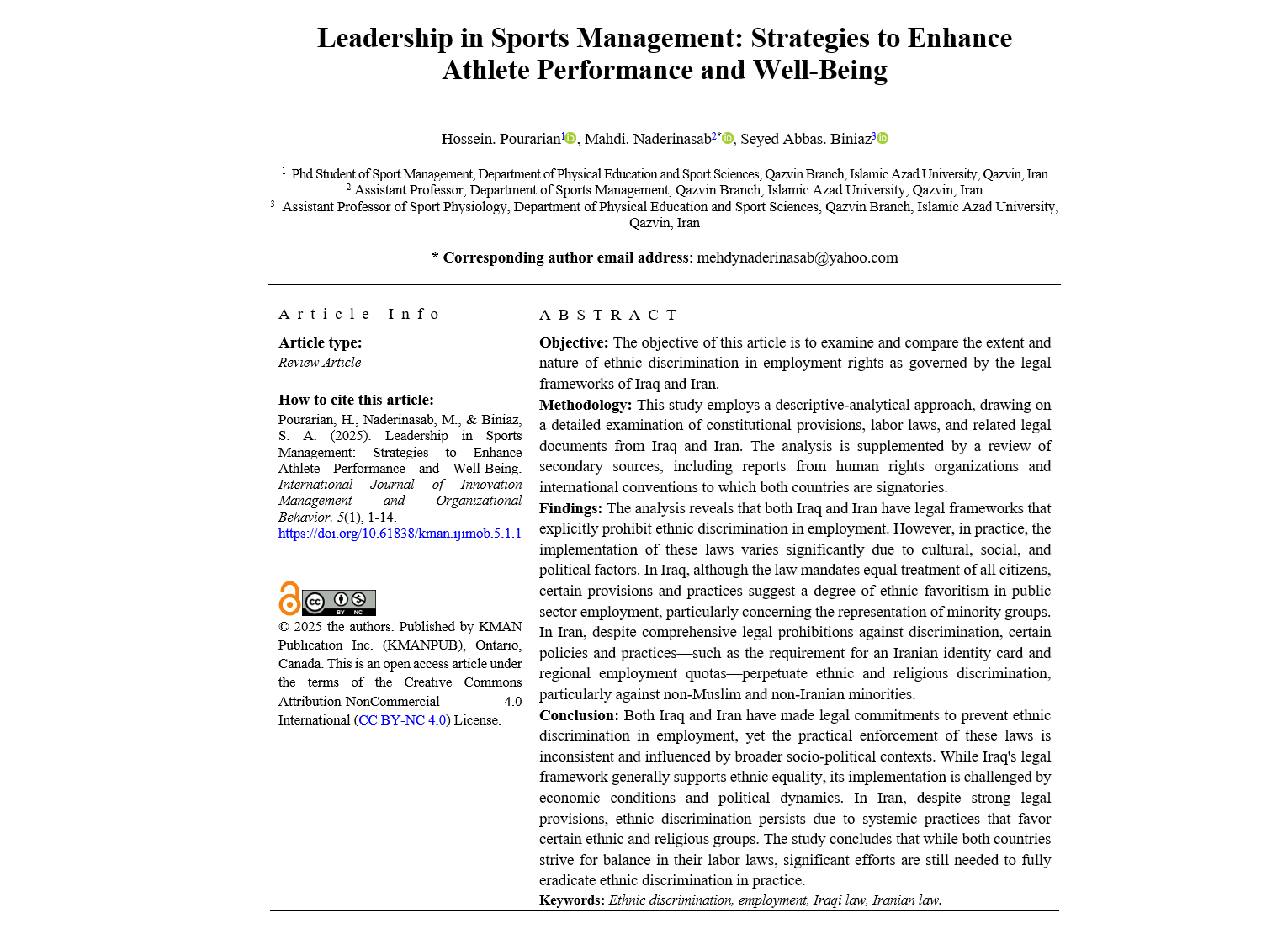Leadership in Sports Management: Strategies to Enhance Athlete Performance and Well-Being
Keywords:
Ethnic discrimination, employment, Iraqi law, Iranian lawAbstract
Objective: The objective of this article is to examine and compare the extent and nature of ethnic discrimination in employment rights as governed by the legal frameworks of Iraq and Iran.
Methodology: This study employs a descriptive-analytical approach, drawing on a detailed examination of constitutional provisions, labor laws, and related legal documents from Iraq and Iran. The analysis is supplemented by a review of secondary sources, including reports from human rights organizations and international conventions to which both countries are signatories.
Findings: The analysis reveals that both Iraq and Iran have legal frameworks that explicitly prohibit ethnic discrimination in employment. However, in practice, the implementation of these laws varies significantly due to cultural, social, and political factors. In Iraq, although the law mandates equal treatment of all citizens, certain provisions and practices suggest a degree of ethnic favoritism in public sector employment, particularly concerning the representation of minority groups. In Iran, despite comprehensive legal prohibitions against discrimination, certain policies and practices—such as the requirement for an Iranian identity card and regional employment quotas—perpetuate ethnic and religious discrimination, particularly against non-Muslim and non-Iranian minorities.
Conclusion: Both Iraq and Iran have made legal commitments to prevent ethnic discrimination in employment, yet the practical enforcement of these laws is inconsistent and influenced by broader socio-political contexts. While Iraq's legal framework generally supports ethnic equality, its implementation is challenged by economic conditions and political dynamics. In Iran, despite strong legal provisions, ethnic discrimination persists due to systemic practices that favor certain ethnic and religious groups. The study concludes that while both countries strive for balance in their labor laws, significant efforts are still needed to fully eradicate ethnic discrimination in practice.
Downloads

Downloads
Additional Files
Published
Submitted
Revised
Accepted
Issue
Section
License
Copyright (c) 2024 Hossein Pourarian (Author); Mahdi Naderinasab (Corresponding Author); Seyed Abbas Biniaz (Author)

This work is licensed under a Creative Commons Attribution-NonCommercial 4.0 International License.

























